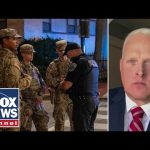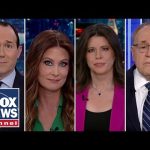In the city of Chicago, a conversation is brewing about crime, federal involvement, and the leadership of Mayor Brandon Johnson. Chicago has held a rather dubious distinction, leading the nation in murder rates for the past 13 years. Now, many are questioning whether more federal support might help change this grim trajectory. Raymond Lopez, a local leader, believes that a federal surge could indeed be beneficial. He points out that while statistics are showing some hope and trending in the right direction, who wouldn’t want to reduce those numbers even further? Fewer victims on the streets are a common goal everyone can support.
However, Lopez doesn’t shy away from his concerns about federal intervention. He raises a point often echoed by citizens wary of federal overreach. Although the city relies on federal grants and collaborates with agencies like the FBI and ATF to target the most dangerous threats, Lopez argues that an outright federal presence might not be welcome. To him, the resistance to federal involvement seems tied closely to a political climate influenced by former President Donald Trump. It’s almost as if some in leadership are playing a game of cat and mouse with their communities, prioritizing political theatrics over real solutions.
In a recent executive order that made headlines, Mayor Johnson claimed to be protecting the rights of Chicagoans. Lopez, however, was not impressed and dismissed the order as ineffective, jokingly suggesting it might not even be worth the paper it’s printed on. This jab at the mayor highlights Lopez’s frustration with what he sees as failures in leadership. He believes that Johnson has been too focused on making performative moves rather than engaging in the necessary dialogue with higher levels of government about real solutions to the city’s crime woes.
Lopez is particularly vocal about the mayor’s reluctance to amend sanctuary city laws. Many Chicagoans — approximately 89% according to Lopez — want local law enforcement to work with federal agents when criminal activity involves non-citizens. Lopez argues that if these changes had been made earlier, the city might not be facing the current levels of crime that have residents living on edge. He suggests that better coordination and communication could significantly improve safety on the streets.
As conversations continue about how to handle crime in the Windy City, some view the lack of federal support as a political maneuver. Observers note that the federal government has not reached out to local officials for collaboration, raising suspicions about their priorities. Lopez believes that both state and local leaders have the means to contact the President in times of crisis, but political motivations might be standing in the way of a more unified approach to tackling crime. The reality is that every day, Chicagoans are looking over their shoulders, hoping for a safer community. If Lopez’s insights ring true, what Chicago needs now is solid leadership willing to put aside politics and focus on protecting its citizens.




